Samurai - country unifiers
came like dew
and how the dew will disappear.
And the whole of Naniwa
- this is only a dream after sleep.
The suicidal poem Toyotomi Hideyoshi (1536-1598).
Translation of the author.
Over the past few dozen articles, although it may be somewhat in a mosaic form, we are plunging deeper and deeper into Japanese history and it appears that in principle it is not so very different from the history of other countries. People - the same scammers, thieves and murderers, masking their vile legends about the great deeds of the past, betrayal in Japan also took place and was even widespread very widely. Rulers were - more or less violent. It was the fragmentation of the country, more or less prolonged. And it will be, perhaps, that in the crucial moments of history among the many ordinary people, and there met such that the personal qualities, the occasion or simple luck, found themselves at the top of the pyramid of power, and not only have, but also conform to this high position. In Japan, for its long history, it has happened more than once, but fate would have it done so that when the end of the sixteenth century, its position has become especially difficult, there there were just three people who by their actions have transformed the country, so much so that she is from a fragmented, the war-torn state and robbery turned into a "modern" at the time the centralized feudal state, where finally there is peace, not for years - but on the whole century! And that's about these people today and our story goes.
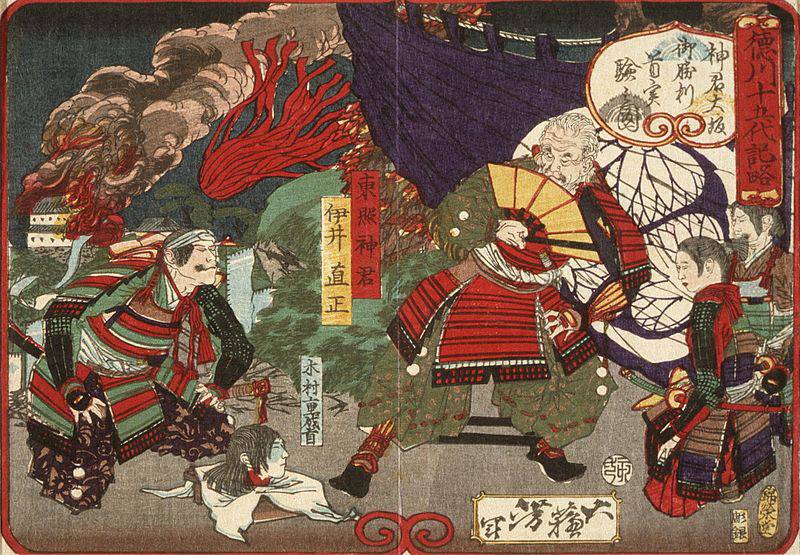
Tokugawa Ieyasu examines Kimura Sigenari’s head brought to him at Osaka. Woodcut Tsukioka Yoshitoshi (1839-1892).
First among them was Oda Nobunaga (1534 - 1582) - heir to a relatively small principality, which lay at the crossroads between Eastern and Western Japan, near the modern city of Nagoya. He could not refuse to vanity, abilities and professional qualities. The beginning of his rise took place unexpected victory for his contemporaries over a certain prince who spoke out against Nobunaga, deciding to take advantage of his childhood. It would be better that the prince did not do it, because this battle he lost. Since then, Oda has consistently and systematically expanded his sphere of influence, until finally, in 1567, his troops entered Kyoto. He placed the shogunate Ashikaga under his control, and later completely banished the unfortunate shogun from his former capital.
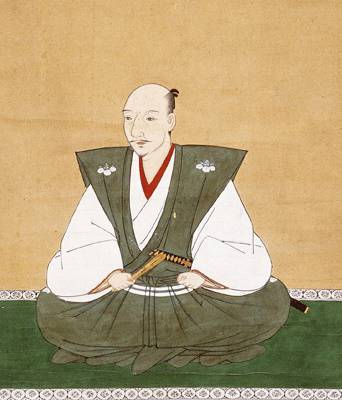
Portrait of Oda Nobunaga from the collection Tokodzi temple in the city of Toyota.
For 20 years, Nobunaga confidently held the reins of government with the lands subordinate to him in his tenacious hands. In this he was helped by the strategic skills and firearms weapon. But he was quick-tempered. He publicly hit one of his very proud general and he did not forgive him for this, set an ambush for him, and Ode had nothing left but to commit suicide. By this time, under his control it was almost a third of Japan - the process of unification began.
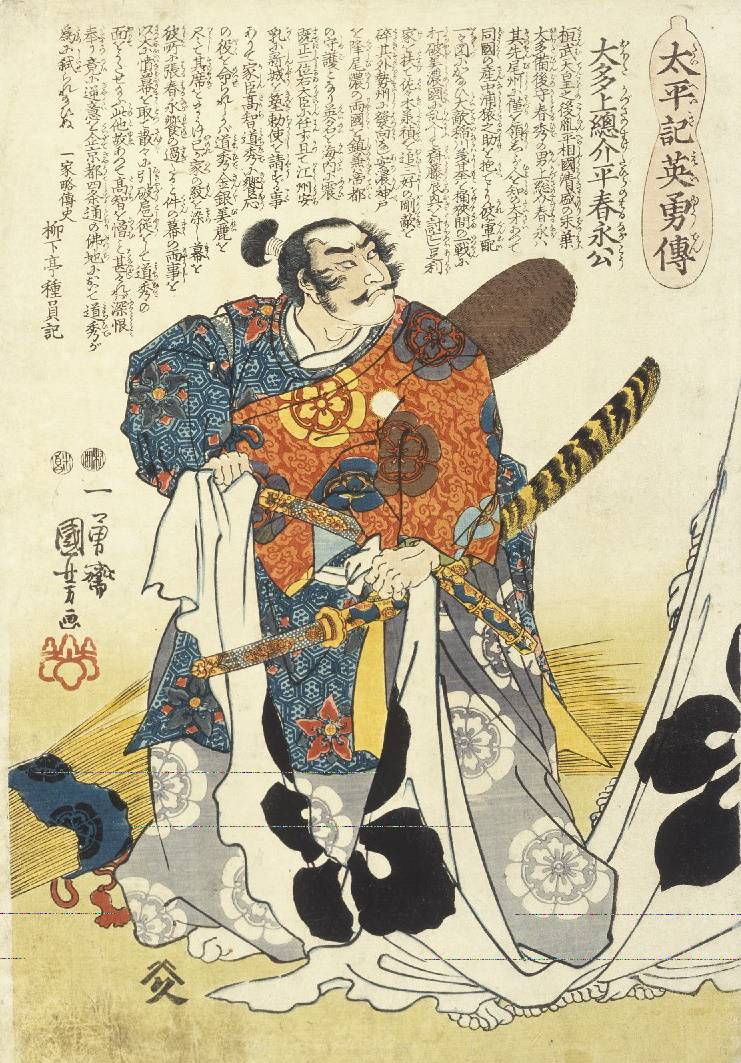
Oda Nabunaga. Woodcut Utagawa Kuniyoshi (1798 - 1861).
The second unifier of Japan, who succeeded much more than the first, has become ... whether son of a peasant, or a woodsman Hasib Hideyoshi (1537 - 1598). In his younger years, wishing to become a samurai, he stole the money given to him by his master on armor buy, bought on their armor, and I became employed in the service of various warlords, until finally he got to the Ode Nobunaga as ... support of his sandals (1554). Before submitting them to his master, he warmed them in his bosom, and his dedication has not gone unnoticed: starting with this humble position, he was able to rise to the rank of general, as Nabunaga praised his dedication, and intelligence, and brilliant military ability. In the 1583, after the death of his master, Hideyoshi actually usurped belonging to the authority, and then another, and received from the Emperor consecutive two positions, one of significant others: Regent-kampaku (1585) and "the great minister" (daijō-daijin, 1586), as well as the aristocratic surname of Toyotomi. By 1591, by “iron and blood”, he united all the territories of Japan under his rule, that is, he did what none of his predecessors could do before him!
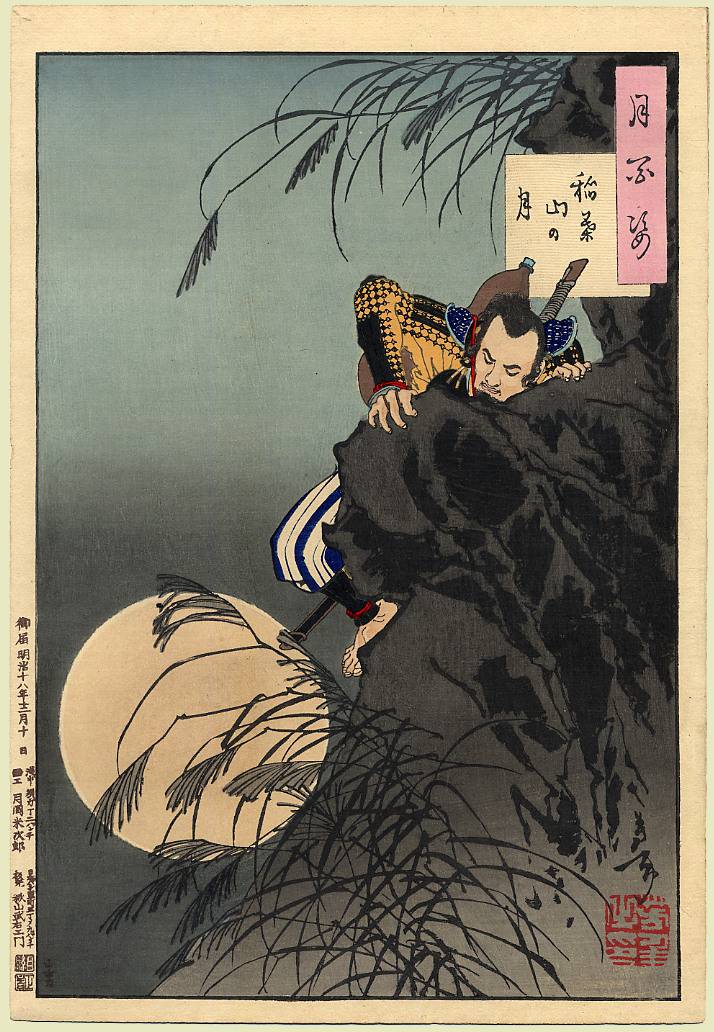
On this woodcut Yoshitoshi in the series "One hundred kinds of moon" shown an interesting episode War Sengoku Jidai, when Oda Nobunaga and his warriors in 1564, the castle besieged by Saito on Mount Inaba. Then the young Toyotomi Hideyoshi found unguarded mountain trail and, taking with him six men, climbed on it almost impregnable rock, after which the castle was taken.
Hideyoshi ordered to make the land registry of land holdings, which helped carry out the taxation of the population over the next three centuries, ordered to withdraw from the peasants and townspeople all the weapons, and the most important all-Section Japanese society into four classes and set their hierarchy. His reign was marked by an attempt to ban the Christian religion in Japan (1587) and a military expedition against Korea and China (1592 - 1598), which ended in failure, though, perhaps he is on it, and counted. But his triumph was incomplete, because he died in the year 1598, leaving his heir infant son Hideori, although it had to assign to the time of its board of trustees age of five. Many responsible posts he appointed personally loyal people, regardless of their origin. And all this for the sake of the future of their son, which they had to provide at any cost. Of course, those who considered themselves descendants of the noble families, were simply outraged that governs them some kind of upstart without, without a family, and that he had with him the same people and dragged "up". So there was a feud between these two groups, and each of them felt that it was about Japan more than the other. In any case, I do not subside feud between them for a single moment.
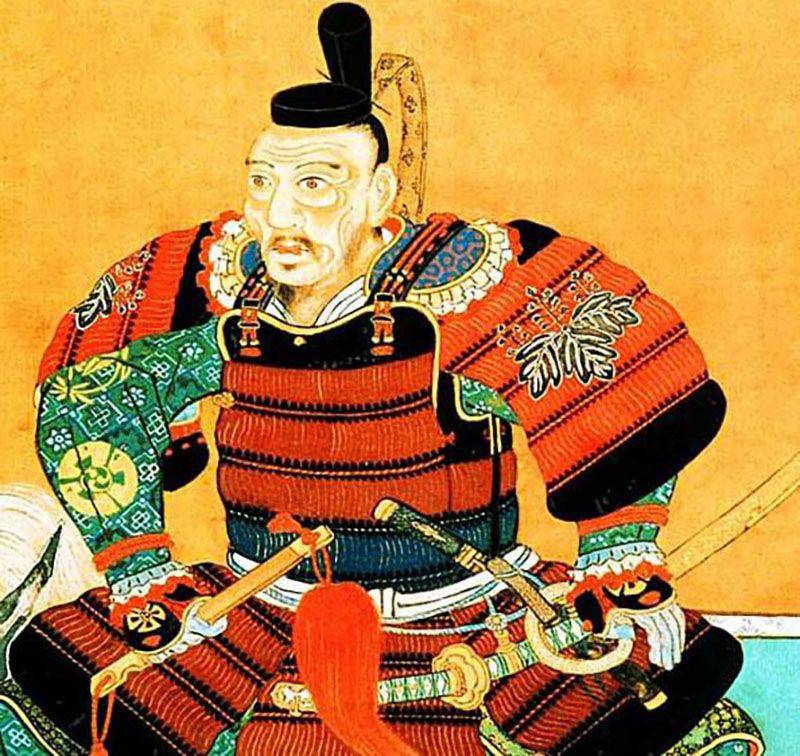
Toyotomi Hideyoshi in armor do-maru red sewing with the stamp of the pavlion on the o-soda - shoulder pads.
And that's just among the five people and found a man who was destined by fate to consolidate the unity of the country and to complete the integration of the country into one state - Prince Tokugawa Ieyasu (1543 - 1616) from the genus Minamoto, who bore the first baby name Matsudaira Taketio; then became Matsudaira Motonobu (the name he got after the ceremony of age in the year 1556) and Matsudaira Motoyasu (the name given to him by his suzerain, Imagawa Yoshimoto), Matsudaira Ieyasu chose the name as a sign of independence from the Imagawa kind in 1562 year; and finally become Tokugawa Ieyasu in 1567 year. Toso-Daygongen is also his name, but only after his death, he received after the death of the divine name "Great God-Savior that shone in the East", which became his reward for all he has done for Japan.
Toyotomi Hideyoshi conquers Shikoku (ukiyo-e Toyohara Tikanobu (1838 - 1912), 1883 year).
To the heights of power, he was long and hard. At first, he spent many years hostage with the stronger daimyo, early lost his father, and very often his life hung by a thread. However, he did not lose his presence of mind, always remember that it is sort of Minamoto, while Hideyoshi only managed to succeed farmer, whom his wedding attire even sewed banners of his master, and that patience and a little effort! The different nature of the "three combiners Empire" could not be better shown in the following legendary story: they all seem to be standing under a tree, and on it sat a nightingale, and I wanted them to hear him sing. But the nightingale did not sing. "He does not sing, so I'm going to kill him" - angrily he decided to Nobunaga. “He does not sing, so I will make him sing,” said the impatient Hideyoshi. “He doesn’t sing, so I’ll wait for him to sing,” Ieyasu decided, and this quality of him, “wait and hope,” turned out to be the best strategy for him in all respects.
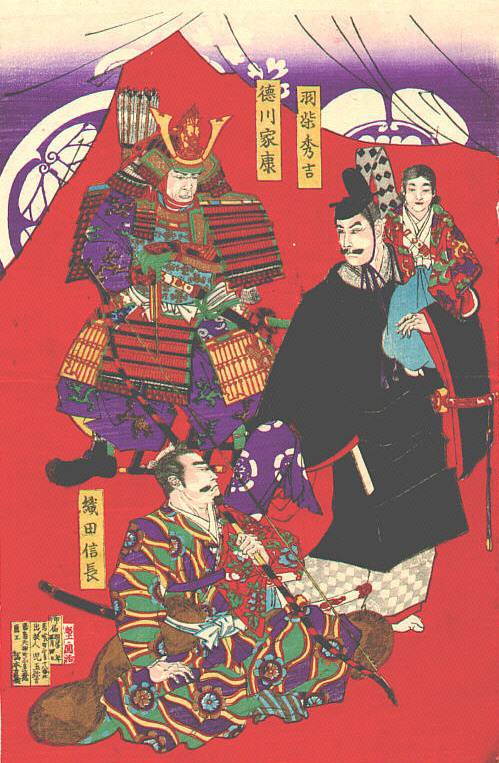
Tokugawa Ieyasu, Toyotomi Hideyoshi, Oda Nobunaga. Part of the triptych Tikanobu Toyohara (1838 - 1912), 1897
Interestingly, in contrast to Oda Nobunaga, who maintained ties with Portugal and Spain, and does not interfere with the Jesuits to spread Catholicism in Japan, Tokugawa thought that it was better to deal with the Protestants of the Netherlands. Since 1605, the chief advisor of Ieyasu on European policy made by the English sailor, pilot William Adams - the same one that in the novel by James Kleyvella "Shogun" was launched under the name of John Blackthorne. Thanks to the advice of the latter, a monopoly on trade with the Japanese got nothing but Dutch. In 1614, Ieyasu issued a decree that completely banned the stay of “southern barbarians” and Christians in his country. Throughout Japan began mass repression and demonstration crucifix faithful to the cross. A small group of Japanese Christians succeeded in fleeing to the Spanish Philippines, and most of them, under the threat of death, were forcibly converted again to Buddhism. Formally, he handed over his title of shogun to his son, but the power in your hands to save, and in his spare time engaged in drafting "The Code of the Samurai childbirth" ( "Buke Sho Hatto") is defined as the rules of conduct of the Samurai in the service, as well as in his personal life, and where in a concise manner, but exhaustively, the traditions of the samurai of Japan (Bushido Code) were formulated and recorded, which had previously been transmitted orally.
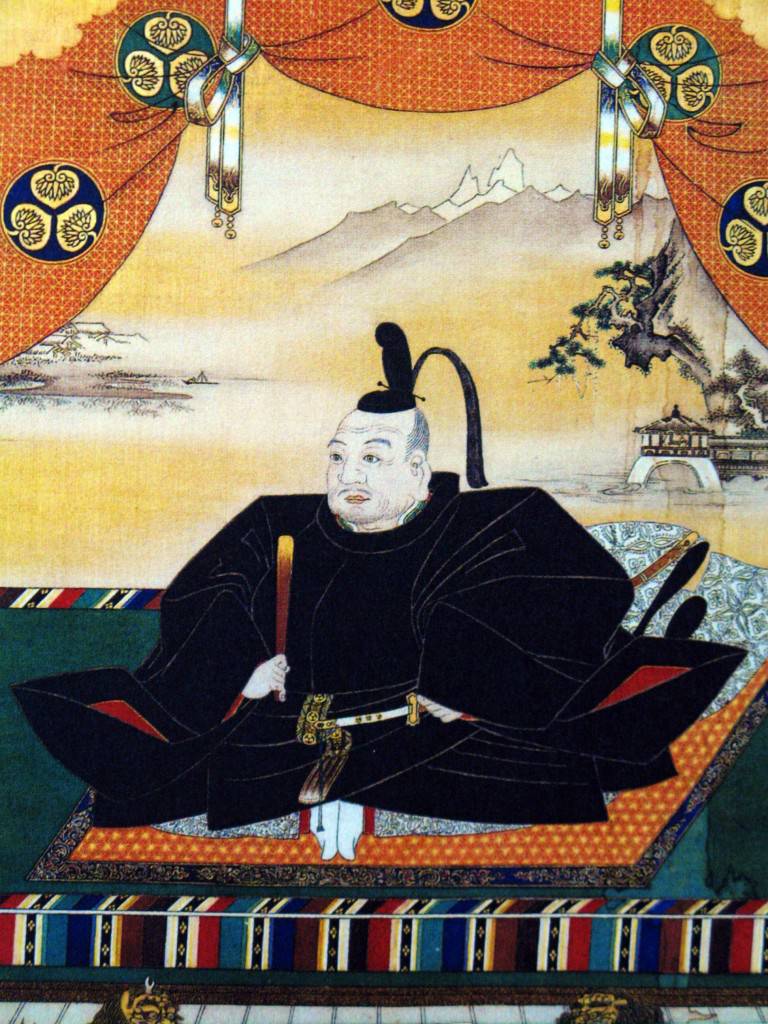
Portrait of Ieyasu Tokugawa.
When it became the country's capital of Edo, later turned into Tokyo. He died at the age of seventy-four, taking part in countless battles and fights, after conspiracies and struggles the length of a lifetime, becoming the full ruler of Japan. He transferred power to his eldest son, Hidetada, and the entire Tokugawa clan after that ruled Japan for 265 years right up to the very 1868 year!
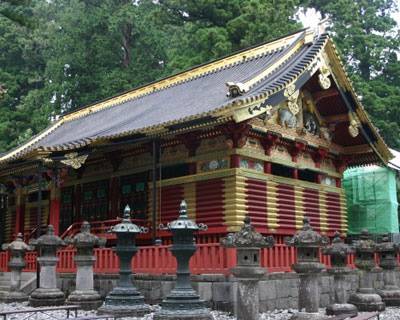
Ieyasu Tokugawa Mausoleum in Tosogu.
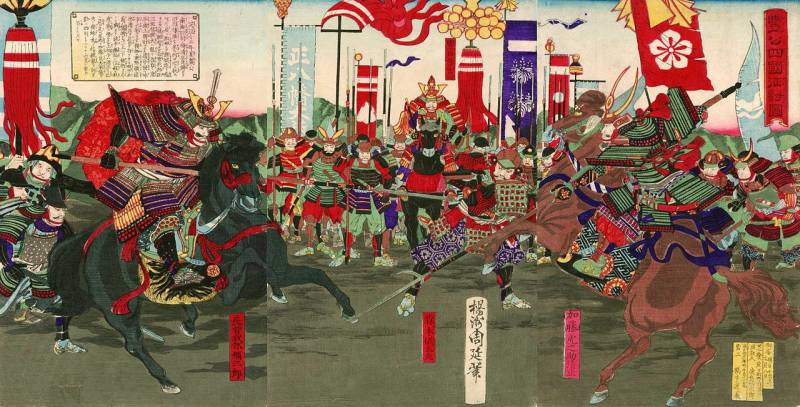
Information